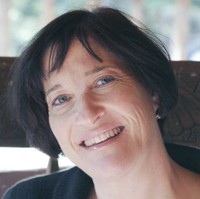We’ve all been wounded, but, paradoxically, wounding is probably our greatest stimulus for health. As we heal, we grow.
~ David Knighton, MD
I have been thinking a lot about healing lately, partly because it is happening on my face. My bee sting of last weekend has dominated my energy and focus as I have witnessed changes in color, swelling and sensation. It was another timely reminder that life on earth is first and foremost an experience in the body. Dealing with the wounds of life on both a physical and emotional level is our first occupation.
Wounds to the body and heart consume the lion’s share of the energy and nutrients that the body produces while healing.
Taking care of yourself with extra sleep and consciously consuming healthy foods is not only a no brainer, but also explains why so many people carry around wounds that don’t heal.
The healing process is, in many profound ways, similar to that of building relationships. It requires our undivided attention and happens slowly. Rushing it in both cases backfires. You can’t hurry wellness anymore than you can hurry love without failing at both.
My son recuperated for an entire year from a traumatic brain injury. He didn’t grow an inch during that time, and each time he intermittently hurt himself again because he ran out of patience for the process, he experienced the full weight of his previous injury. I learned about an entire field of medicine devoted to dealing with wounds that won’t heal from my recent radio guest, Dr David Knighton.
Interestingly, regardless of whether the injury is physical or emotional, what keeps us from healing is that all wounds that don’t heal are burdened with a foreign body that needs to be cleaned out, at the root of the problem.
This is easy to visualize in the physical body. Wounds that won’t heal usually have some foreign debris or infection left in the wound that is visibly festering and needs to be cleaned out very deep in the wound. I remember one time when I had a chicken bone sliver lodge under a fingernail. The sliver was so deep and the pain was so sharp that my entire hand throbbed. The intensity of the pain kept me from probing for the culprit. Eventually, my finger got so swollen and purple that I was determined to get out whatever it was. The agony and ecstasy of the relief in that extraction remains a vivid memory for me. It is easy to try to avoid the pain that you have to endure to get to the bottom of the problem.
This is even more true when it comes to our emotional wounding.
We often don’t have the language or emotional intelligence to fully experience our traumas when they occur, especially those we endure in childhood. This is how sexual abuse and other childhood forms of neglect and abuse often end up becoming a chronic physical ailment. More often than not, unresolved wounds live in us both physically and emotionally. They become the basis of a story line that dominates our lives.
Shame, guilt, rage, and resentment are all foreign bodies to our natural state of emotional well-being. When they take up residence as the residual part of our wounded-ness, we resort to various forms of denial to cover up the original source of the wound. Our emotional bodies need the same care as our physical body, but because these wounds are invisible, we mistakenly believe that they will disappear by ignoring them. Emotional problems only grow in the darkness of our avoidance. They cannot heal without our loving attention, instead they fester and grow into lives we would not choose and do not deserve.
One could argue, healing our long-standing emotional wounds takes even more courage because we have to trust our inner experience.
Often we don’t have the luxury of an outside medical expert to verify our wound. Emotional healing requires the courage to call something by its right name, and to identify its true source. Finding the courage to extricate the shame, guilt, or other emotional baggage from our hearts is where healing begins and we open to the potential of our life.
~ “Like” elephant wellness on facebook ~
~
Editor: Lynn Hasselberger






Read 7 comments and reply